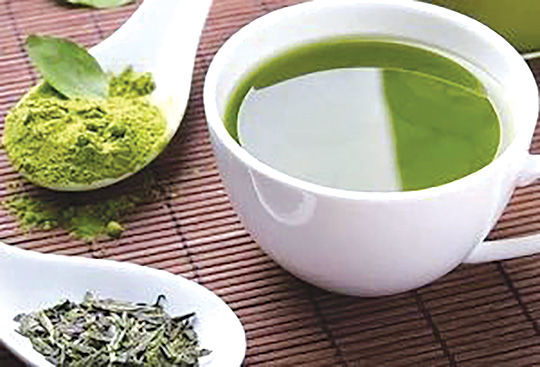Natural Pain Reliever Under Attack by the FDA, Some Fear Ban Is Upcoming
The controversial opioid alternative kratom is at risk of being banned although more than 142,000 people signed a petition opposing the ban including two advocates near Yelm.
Kratom is a plant that grows naturally in Thailand, Malaysia, Indonesia and Papua New Guinea and is used as a natural medicine to ease pain, relieve anxiety and is often used as harm reduction for opioid addiction. It is commonly taken orally in capsule form, mixed with food, water or tea.
The substance was nearly banned by the Drug Enforcement Administration in October 2016 but the agency delayed their decision after backlash from kratom advocates across the country. The DEA planned to classify the herb as a schedule one drug, along with heroin, ecstasy and LSD but delayed their decision until the Federal Food and Drug Administration issued a recommendation.
FDA Commissioner Scott Gottlieb issued an advisory Nov. 14 for consumers to avoid using kratom as it was linked to 36 deaths. The linked deaths are under scrutiny by the American Kratom Association, a coalition of kratom advocates.
“Evidence shows that kratom has similar effects to narcotics like opioids, and carries similar risks of abuse, addiction and in some cases, death,” Gottliebi said in a statement. “At a time when we have hit a critical point in the opioid epidemic, the increasing use of kratom as an alternative or adjunct to opioid use is extremely concerning.”
Three members of the coalition obtained autopsy reports and found many of the linked deaths involved other drug use including opioids and one linked death was ruled as a homicide with cause of death due to traumatic lung, chest and aortic injury.
“That’s like saying coffee or water is in their system,” said kratom advocate Linda Mitchell.
Mitchell, 36, of Graham, began using kratom about five months ago after she underwent a hysterectomy due to endometriosis. She said the disease causes spontaneous flare ups, which resulted in many hospital visits but kratom reduces her pain level and provides energy. She takes a teaspoon and a half 3-4 times per day, equalling roughly 12-15 grams per day. Mitchell said comparing the substance to opioids is unfair because kratom “doesn’t get you high.”
“Within 20 minutes most of the pain is gone. My pain level goes from seven or an eight to two or a three (on a scale of one to 10) which is manageable for me,” Mitchell said. “I always had extreme fatigue my whole adult life and there was no energy. I’m always go, go, go, but some days I couldn’t bear to get off the couch. I now have energy like normal people.”
Nora Van Meter, kratom advocate and former Yelm resident, said she began using kratom as an alternative to opioids two years ago. Van Meter served eight years in the Army and although she was never deployed, she attributes chronic neck and back pain to physical training required of military service.
Kratom can be found in some urban gas stations and marijuana shops but Van Meter and Mitchell recommended buying kratom from trusted vendors through the American Kratom Association or Kratom Connoisseurs. They said gas stations and head shops require little regulation while both forums have a select group of individuals who test their product before it is available for distribution.
“We understand regulations and it needs to be clean and pure,” Van Meter said. “No one wants it mixed with other things, if you want regulations, that’s fine with us. We just don’t want you to take it away because you’re not making money off of it.”
Van Meter argued the federal government’s intention to ban the supplement is based on revenue received through the pharmaceutical industry.
CNBC estimated U.S. consumers to have purchased $450 billion worth of prescription drugs based on their list price in 2016, a total estimated revenue of $323 billion after discounts and rebates. Their five-year forecast predicts spending to surge to $610 billion by 2021.
Pharmaceutical companies will not receive any revenue through kratom. Many members of the American Kratom Association including Van Meter and Mitchell conspire the federal government intends to ban kratom which would push consumers to prescription drug use.
The Washington state government is focused on opioid prescribers with Senate and House bills focused on treatment and prevention.
Opioid abuse has been a frequent topic among the Washington state Legislature. In September, Washington state Attorney General Bob Ferguson filed a lawsuit against Purdue Pharma for fueling an opioid epidemic in Washington state (See last weeks front page article). The lawsuit revealed Purdue visited one physicians practice out of Yelm and Olympia 537 times in an eight year span. The physician prescribed about 6,300 prescriptions of Oxycontin, Brutans and Hysingla, more than three times than the second highest prescriber in Olympia. 64,000 people in the U.S. died of drug overdoses in 2016 according to the New York Times.
Washington senators took action after Gov. Jay Inslee urged the Legislature to respond to the opioid epidemic at the end of last year’s legislative session. Senators Annette Cleveland and Ann Rivers introduced SB 6150, focused on health and long term care while state representatives Eileen Cody and Jay Rodne introduced House Bill 2489, focused on healthcare and wellness.
Mitchell and Van Meter believe the answer to many of the problems associated with the opioid epidemic can be resolved through kratom use. They cited that many kratom users use the substance for pain relief instead of taking opioids and are fearful that kratom advocates will be left without safe ways to relieve pain.
“I don’t even want to think about it,” Van Meter said. “People will go back to the streets to find drugs, find alternate ways of coping with pain. I feel bad if that’s what they must resort to but I hope it doesn’t come to that. People don’t know about kratom and it would make a big difference if they did.”







